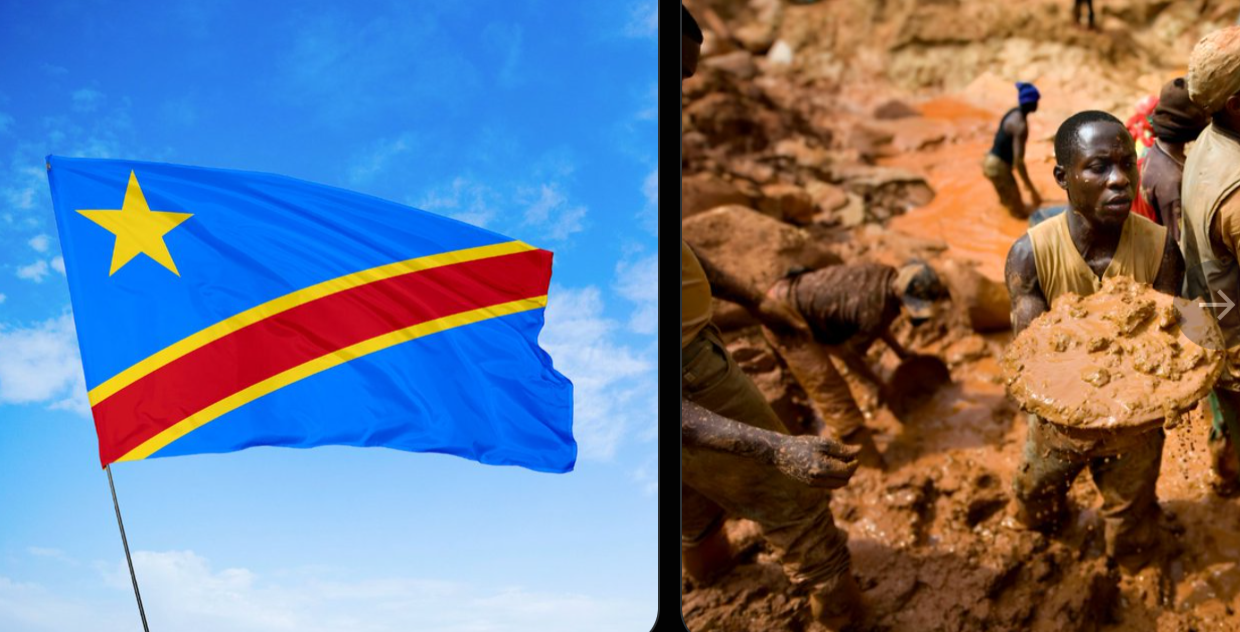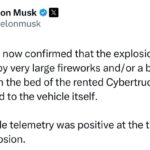The Democratic Republic of Congo has SUED APPLE over “stealing blood minerals.”
In a legal move that is grabbing global attention, the Democratic Republic of Congo (DRC) has filed a lawsuit against Apple Inc., accusing the tech giant of “stealing blood minerals.” This lawsuit centers on the mining of cobalt, a critical mineral used in the production of smartphones, electric vehicle batteries, and various other electronic devices. The DRC, which is home to the world’s largest cobalt reserves, has long struggled with the ethical implications surrounding the mining of these resources, including issues of child labor, unsafe working conditions, and exploitation by multinational corporations. In this blog post, we will explore the background of the case, the allegations made by the DRC, and the broader implications for the tech industry and human rights.
Background: Cobalt Mining and Its Controversies
Cobalt is an essential element used in the production of lithium-ion batteries, which power everything from smartphones and laptops to electric vehicles. The DRC is the world’s leading producer of cobalt, accounting for over 70% of global supply. While cobalt mining is crucial for the global technology and automotive industries, the mining process in the DRC is fraught with human rights violations, including child labor, hazardous working conditions, and the exploitation of workers by both local and international companies.
The mining of cobalt in the DRC has long been criticized for its negative environmental and social impacts. Many of the mines, particularly artisanal mines, operate under dangerous conditions, where workers, including children, are exposed to toxic chemicals, often working in unsafe and unstable environments. Human rights organizations have raised alarm about the use of child labor and the lack of protections for workers in the region, with many mining operations linked to illegal and unethical practices.
Apple, along with other tech companies, has faced mounting scrutiny over its supply chain practices, particularly regarding the sourcing of minerals like cobalt. Over the years, Apple has made public commitments to improve the transparency and ethical sourcing of its materials. However, critics argue that these commitments have not gone far enough to address the deep-rooted issues within the mining industry, particularly in the DRC.
The Allegations: Stealing Blood Minerals
In its lawsuit, the government of the DRC accuses Apple of benefiting from the exploitation of its natural resources without adequately addressing the human rights violations associated with cobalt mining. The DRC alleges that Apple, along with other multinational corporations, has been complicit in the exploitation of “blood minerals,” a term used to describe minerals extracted in conflict zones or under exploitative conditions.
The lawsuit claims that Apple’s business practices have contributed to the continuation of child labor, hazardous working conditions, and environmental degradation in the DRC. Specifically, the DRC government alleges that Apple has failed to ensure that its cobalt supply chain is free from human rights abuses, despite being aware of the situation for years. The lawsuit demands compensation for the harm caused by the mining operations that supply cobalt to Apple and other companies, as well as calls for greater accountability in the tech industry.
Apple has not yet publicly responded to the specific claims in the lawsuit, but it has previously stated that it works with suppliers to ensure the responsible sourcing of minerals and that it conducts regular audits to monitor compliance with its supplier code of conduct. The company has also made efforts to source cobalt from mines that adhere to ethical standards and is involved in initiatives to improve working conditions in the DRC.
The Broader Implications for the Tech Industry
The lawsuit filed by the DRC against Apple is part of a larger trend of increasing scrutiny on the tech industry’s role in human rights abuses linked to resource extraction. As demand for electronics, electric vehicles, and renewable energy technologies continues to grow, so too does the pressure on companies like Apple, Tesla, and other tech giants to ensure that their supply chains are free from exploitation and environmental harm.
For years, companies have been criticized for their reliance on minerals like cobalt, which are often mined in countries with poor labor rights records. While many tech companies have made strides in improving supply chain transparency and reducing their environmental footprint, critics argue that these efforts have not been enough to address the systemic issues of exploitation and human rights abuses within the mining industry.
The DRC’s lawsuit against Apple could serve as a wake-up call for the tech industry, signaling the need for stronger regulations and more transparent supply chains. If successful, the lawsuit could set a precedent for other countries and communities affected by the global demand for minerals, pushing companies to take greater responsibility for the human and environmental costs of their products.
The Impact on the Democratic Republic of Congo
The DRC’s lawsuit against Apple is not just a legal action; it is also a reflection of the broader struggles faced by the country in its efforts to gain control over its natural resources and ensure that its people benefit from the wealth generated by the mining industry. The DRC is one of the world’s richest countries in terms of natural resources, yet it remains one of the poorest due to the exploitation of these resources by multinational corporations and armed groups.
Cobalt mining in the DRC is a significant source of revenue for the country, but much of the wealth generated from this industry does not trickle down to local communities. Instead, it is often siphoned off by powerful foreign companies and corrupt local officials. The lawsuit against Apple could serve as an important step in holding multinational corporations accountable for the impact of their operations on the DRC’s people and environment.
If the DRC’s legal action is successful, it could lead to significant changes in how international companies source minerals from conflict zones. It could also provide the country with the leverage it needs to demand a larger share of the profits generated by its natural resources and to push for reforms that protect workers and the environment.
Apple’s Response and the Road Ahead
While Apple has not publicly responded to the lawsuit in detail, the company has been under increasing pressure to improve its supply chain practices, particularly when it comes to sourcing minerals like cobalt. Apple has long been criticized for its role in perpetuating unethical practices in the mining industry, despite its public commitments to sustainability and human rights.
In response to these criticisms, Apple has implemented a number of initiatives aimed at improving transparency in its supply chain, including audits of its suppliers and efforts to source cobalt from certified, ethical mines. The company has also worked with organizations like the Responsible Cobalt Initiative, which seeks to improve conditions in the cobalt supply chain.
However, critics argue that these efforts are not sufficient to address the scale of the problems in the DRC and other resource-rich countries. The lawsuit filed by the DRC could push Apple to take further action and perhaps reevaluate its supply chain practices to ensure that it is not contributing to human rights abuses.
Conclusion
The Democratic Republic of Congo’s lawsuit against Apple is a significant moment in the ongoing battle over the ethical sourcing of minerals used in the tech industry. The case highlights the challenges of balancing the demand for essential materials like cobalt with the need to protect human rights and the environment. While the outcome of the lawsuit remains uncertain, it serves as a reminder of the deep ethical concerns surrounding the global supply chain for electronics and the importance of holding corporations accountable for their role in perpetuating exploitation and abuse.
As the lawsuit moves forward, the global community will be watching closely to see whether it prompts further changes in the way multinational corporations, particularly in the tech industry, source their materials and conduct business in regions affected by conflict and exploitation.

















Post Comment